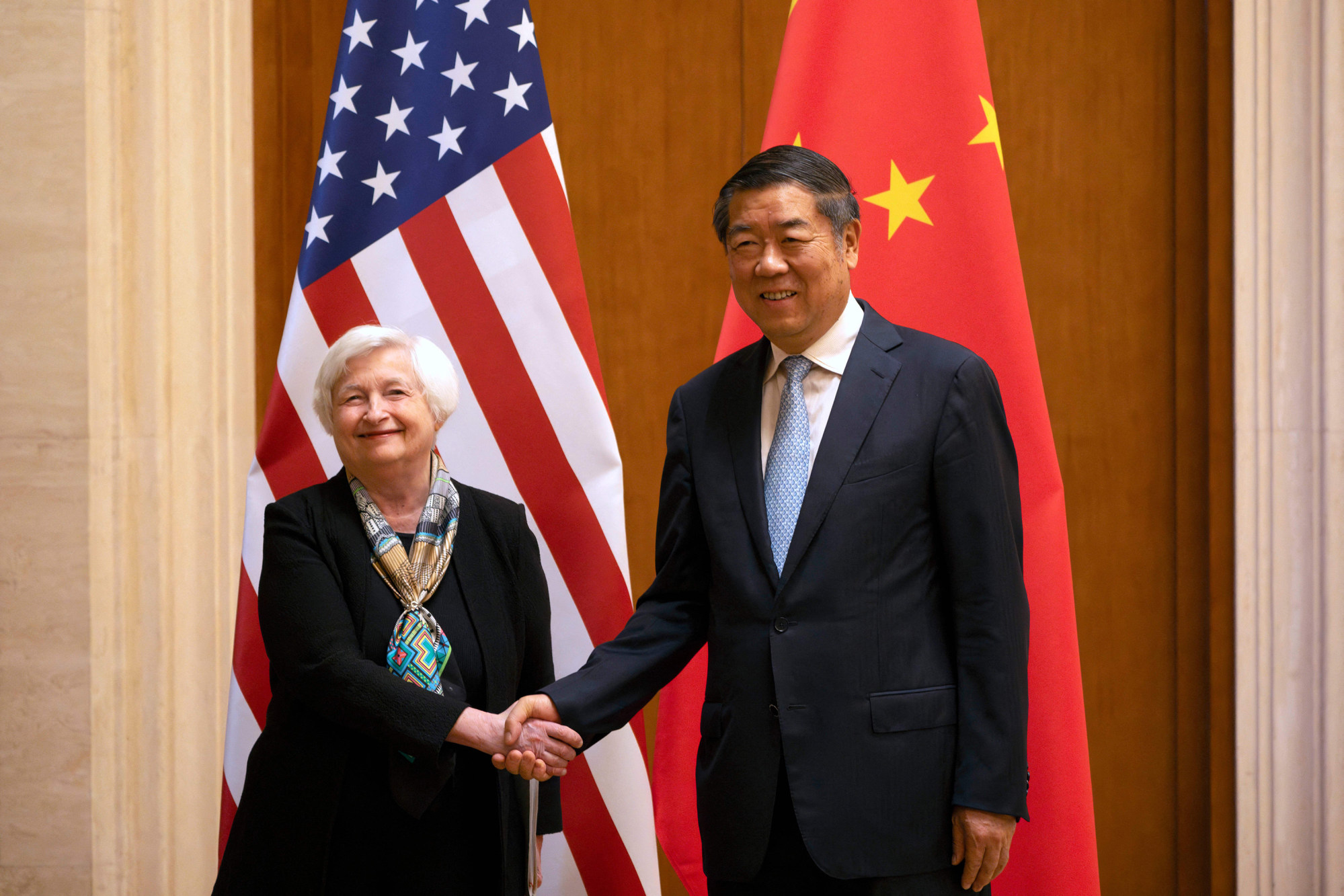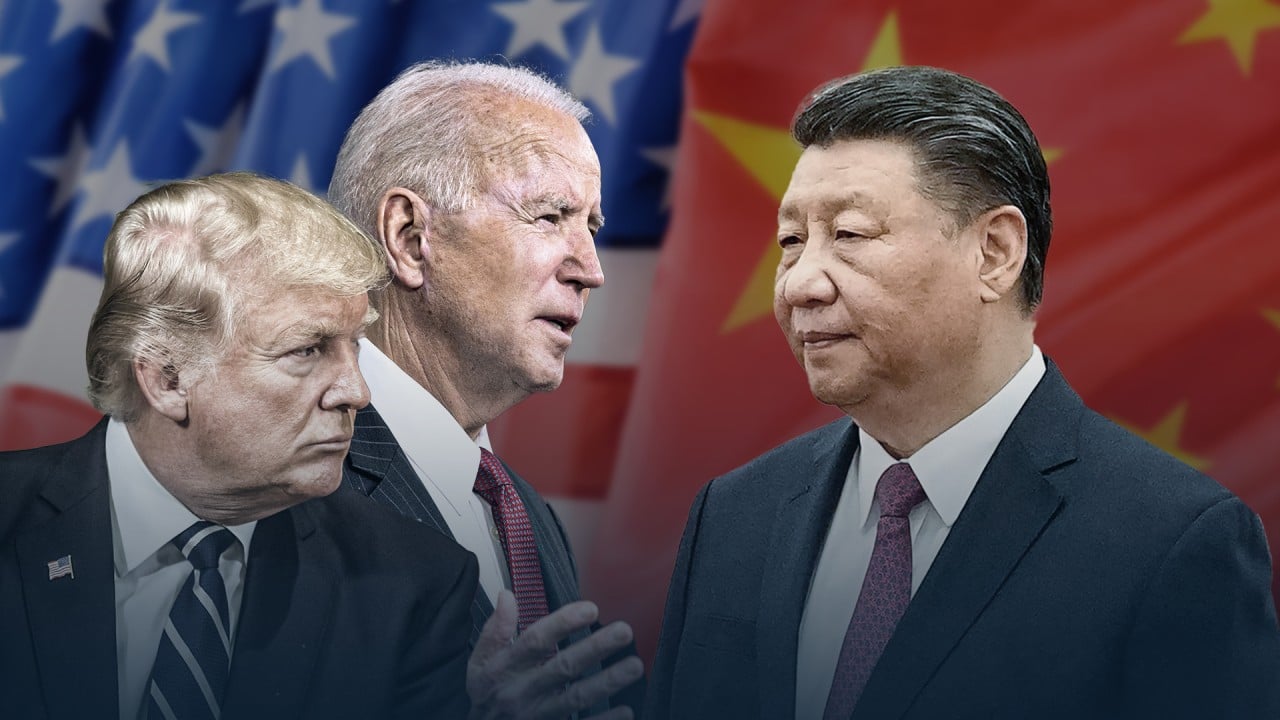
US-China relations: Treasury Secretary Janet Yellen hails ‘step forward’ but warns national security concerns remain
- One of the most dovish members of the US administration wraps up a visit to Beijing by saying decoupling would be ‘disastrous’ and ‘virtually impossible’
- Visit is latest in series of steps to improve strained ties, but significant differences between the two sides remain
US Treasury Secretary Janet Yellen said Washington would continue to take action to protect its national security despite her confidence that her visit to China had helped put relations on a “surer footing”.
Beijing and Washington did not announce any substantial agreement during Yellen’s trip to China, but the four-day visit offered the two sides a chance to stabilise relations.
“I believe that my bilateral meetings – which totalled about 10 hours over two days – served as a step forward in our efforts to put the US-China relationship on a surer footing,” she said.
Yellen said her talks with senior economic officials aimed to “establish a desire and willingness” for further engagement.
He trip came less than a month after Secretary of State Antony Blinken’s visit to Beijing in June marked the resumption of senior-level official contact in efforts to fix the strained ties.
Growing international tensions and US-led efforts to contain the Chinese technology sector have increasingly driven international investors to diversify away from the country.
The US Federal Reserve is looking to raise interest rates to curb inflation just as Beijing is cutting its rates to prop up the economy, a move that may accelerate capital outflows from China and hamper its recovery.
“There is an important distinction between decoupling on one hand, and on the other hand, diversifying crucial supply chains or taking targeted national security actions,” she said.
“We believe the world is big enough for both of our countries to thrive.
“No one visit can solve our challenges overnight. But I hope the trip will help build a resilient and productive channel of communication with China’s new economic team.”

Yellen said she tried to address Chinese concerns that “de-risking” – the process of the US and other Western countries reducing their economic reliance on China – amounted to decoupling and said the two were “by no means the same thing”.
She added that even in the sectors where Washington was trying to de-risk, the US would continue to have trade and investment with China.
“A great deal of our economic interaction with respect to trade and investment is unproblematic, uncontroversial, brings benefits to us, brings benefits to China, and we want that to continue … Certainly I think that message was received.”
Without elaborating, she said some progress was made during her trip. A brief statement from Chinese state news agency Xinhua also implied deep rifts remained between the two sides.
“Abuses of national security would harm normal economic and trade interactions,” Xinhua said on Saturday after Yellen met He Lifeng, the vice-premier leading the Chinese side in trade discussions with the US.
During the “in-depth, candid and practical” exchanges and “constructive” discussions, the Chinese side expressed concerns about US sanctions and restrictive measures.
The US has expanded the list of export controls against Chinese companies, citing security concerns, and has been working with other countries to restrict China’s access to advanced chips.
Yellen said she raised concerns about recent punitive measures against US firms.
“I do believe that it’s possible for both countries to be attentive to and to take actions to protect their national security interests. That’s what the United States has done and will continue to do.
“But I do think it’s important that we should be transparent about the actions we’re taking, that they be clearly focused on national security and that we try to anticipate,” she said.
Yellen also said the US dollar would continue to play a dominant role in the global financial system in the years ahead despite recent moves to increase the use of the yuan and establish a non-dollar reserve currency.
“All of the data of which I’m aware shows that the dollar is overwhelmingly close to 90 per cent used in international transactions, and I don’t think that there is an alternative that could possibly displace that in the foreseeable future.”
She also said she discussed the Ukraine war with China and said it was essential that Chinese firms avoid providing material support or help evade sanctions.
Gong Jiong, a professor at the University of International Business and Economics in Beijing, said apart from reaching consensus with Beijing on climate change and global debt relief, there had been no substantial progress.
“Her trip aimed to stabilise bilateral relations, but only a loosening of tech containment on Chinese companies, as well as the US attitude towards Taiwan changing, can substantially improve China-US ties,” Gong said.
Wang Yiwei, a professor of international relations with Renmin University, said while the visit would help improve the two sides’ understanding of each other, it had not resulted in progress on reducing tariffs or easing the tension created by the tech war.
“While it continues to criticise China for its unfair market treatment and pressures China to uphold market rules, it is also imposing tech containment on Beijing. This is against market rules and contradictory.”



